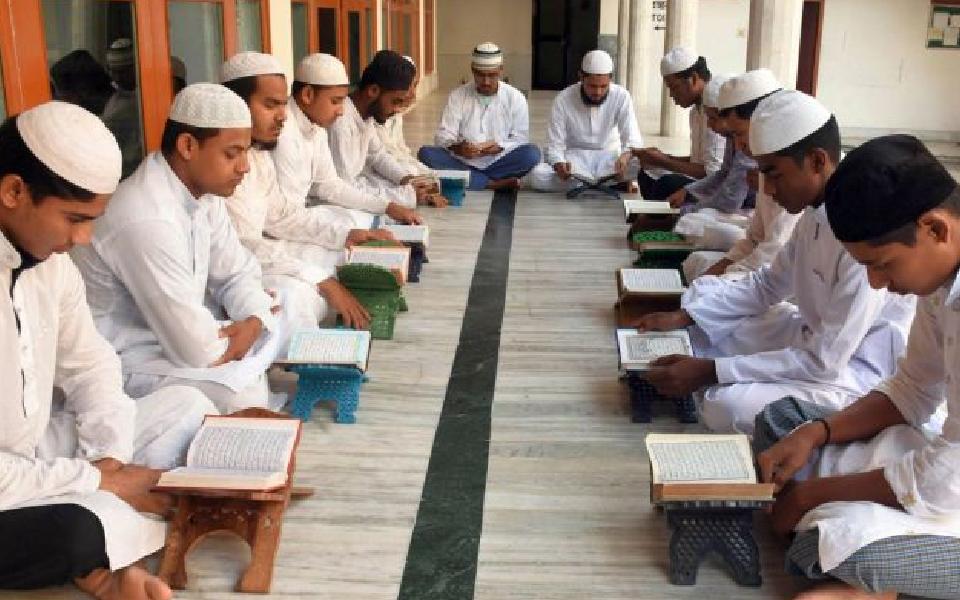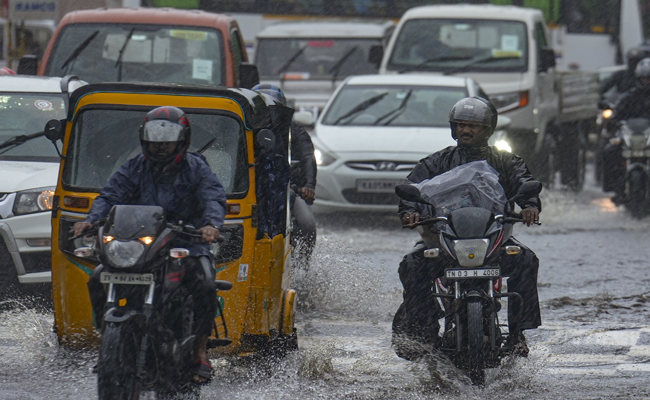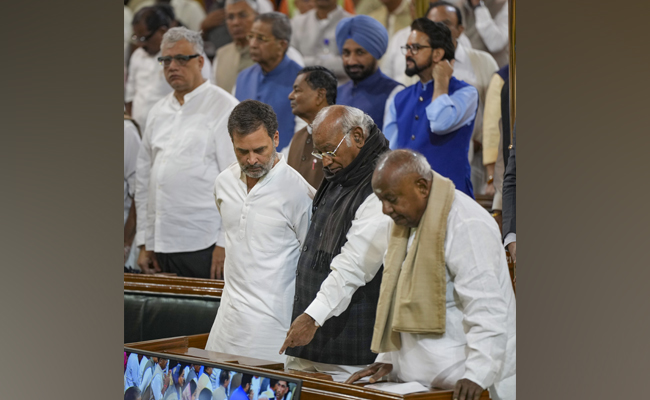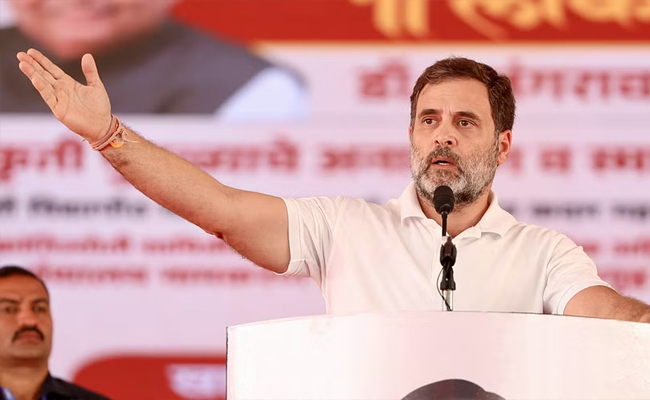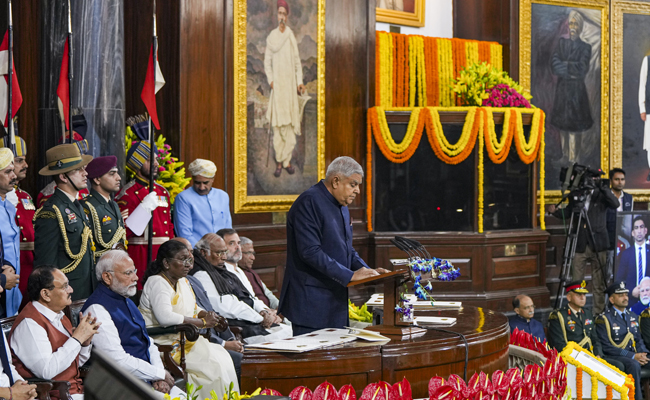New Delhi, Oct 13: The apex child rights body has raised serious concerns about the state of functioning in madrassas and called for stopping state funding to them unless they comply with the Right to Education Act.
In its latest report titled 'Guardians of Faith or Oppressors of Rights?', the National Commission for Protection of Child Rights (NCPCR) said religious institutions operating outside the purview of the Right to Education (RTE) Act, 2009 had a negative impact.
According to the report, the exemption of madrassas from the RTE Act has deprived children attending these institutions of quality education.
While Articles 29 and 30 of the Indian Constitution protect the rights of minorities to preserve their culture and establish educational institutions, NCPCR asserts that these provisions have inadvertently led to discrimination against children in madrassas, who miss out on formal education mandated by the RTE Act.
The report pointed out that while the primary focus of madrassas is religious education, many do not provide the essential components of formal education such as adequate infrastructure, trained teachers, and proper academic curricula.
This leaves students at a disadvantage compared to their peers in mainstream schools.
The report also noted instances where madrassa students have been denied basic entitlements such as textbooks, uniforms, and access to midday meal scheme.
The NCPCR said a large number of Muslim children out of school, with an estimated 1.2 crore Muslim children not receiving formal education, according to UDISE 2021-22 data.
The report also said there was a lack of accountability in many madrassas, where physical safety concerns, such as poor infrastructure and cases of child rights violations, have been reported.
NCPCR has recommended a series of measures, including stopping state funding to madrassas and madrassa boards unless they comply with the RTE Act.
Additionally, NCPCR has recommended removing non-Muslim children from madrassas, as their inclusion violates Article 28 of the Constitution, which prohibits the imposition of religious instruction without parental consent.
The commission's report called for a balanced approach, where both religious and formal education can coexist but not within the same institution.
"Religious education cannot come at the expense of formal education," the report asserted, emphasising that the state must prioritise the fundamental right of every child to free and compulsory education.
Let the Truth be known. If you read VB and like VB, please be a VB Supporter and Help us deliver the Truth to one and all.
Chennai (PTI): Rains lashed several parts of Tamil Nadu on Tuesday, and the India Meteorological Department said the depression over Bay of Bengal has formed into a deep depression and it is likely to intensify into a cyclonic storm on November 27.
Chief Minister M K Stalin chaired a high-level meeting here at the Secretariat to review the precautionary measures and rushed NDRF and State teams to Tiruvarur, Mayiladuthurai, Nagappatinam and Cuddalore districts.
Chennai and nearby districts of Chengelpet, Kanchipuram and Tiruvallur, the northern coastal city of Cuddalore and Cauvery delta areas, including Nagapattinam were among the places that received rainfall, which was mild to moderate in many areas and heavy in a few places.
Due to the rains, heavy traffic congestion was witnessed here in many areas including the arterial OMR Road and traffic flow was affected in several areas as roads came under sheets of water. Also, in Chennai, there was delay in the landing of 7 flights.
State-run Aavin said it has taken all steps to ensure unhindered milk supply to the people and announced that eight of its parlours here will be open 24 x 7.
Stalin, through video conferencing, reviewed the action plan to tackle the situation. Very heavy rainfall forecast covers the districts of Mayiladuthurai, Villupuram, Nagapattinam, Tiruvarur, Thanjavur and Cuddalore. District collectors and IAS officials, tasked with monitoring and coordinating rain-related tasks took part in the meeting.
Collectors apprised the chief minister that adequate number of relief camps and medical teams were on standby and all other necessary arrangements were in place too. Stalin told officials that relief centres must be 'ready with all the amenities' and people should be evacuated in advance from low lying areas.
An official release here said that two NDRF teams have been dispatched to Thanjavur district. For each of the districts of Tiruvarur, Mayiladuthurai, Nagappatinam and Cuddalore, two teams ---one from NDRF and the other from the State-- have been dispatched.
Also in such districts, first-responders and volunteers are also ready for deployment. "Already, fishermen have been advised against venturing into the sea and a majority of boats have returned to shore."
As regards fishermen who have gone for deep sea fishing, they have been informed to move to the nearest harbours.
The state and district level emergency operation centres are functioning 24 x 7.
Minister for Revenue and Disaster Management, KKSSR Ramachandran, Chief Secretary N Muruganandam and top state officials participated in the meeting chaired by the chief minister.
According to the IMD, the depression over Bay of Bengal intensified into a deep depression and it is about 770 km south-southeast of Chennai and 570 km south-southeast of Nagapattinam.
In its update, the IMD said on 'X': "It is very likely to continue to move north-northwestwards and intensify further into a cyclonic storm on 27th November. Thereafter, it will continue to move north-northwestwards towards Tamil Nadu coast skirting Sri Lanka coast during subsequent 2 days."

